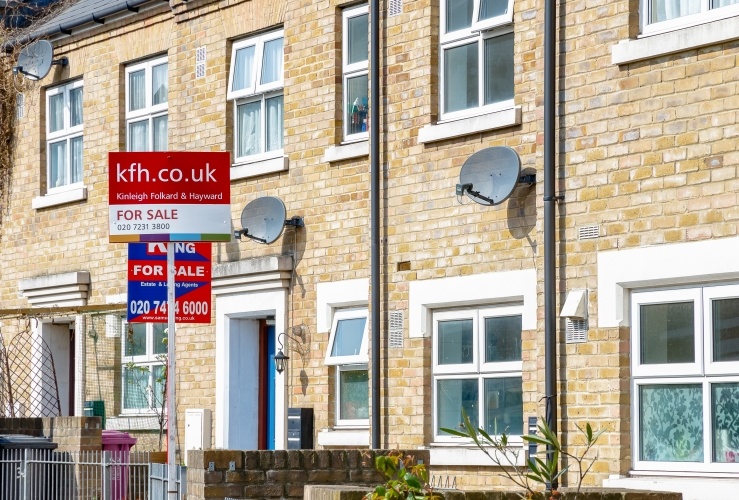
iStock.com/VictorHuang
House prices increased by an average of £10,000 over the last 12 months, a key factor in subduing property sales, say industry figures.
According to the ONS, the average property price in June stood at £223,357, up from £214,000 the previous year.
House price increases slowed slightly overall, but growth across 2017 remained roughly flat at 5 per cent, according to ONS data.
The east of England saw the biggest price rises, where the average property increase stands at £286,623, equating to a growth rate of 7.2 per cent. The East Midlands saw similar gains of 7.1 per cent.
Only London saw a decrease in prices, falling 0.6 per cent in June. The average property price in the capital stood at £482,000 in June, a £3,000 drop on the previous month.
The fastest growth was recorded in Yorkshire and Humber, where a 2.6 per cent increase equated to an average house price of £158,000.
High asking prices are reported as a key reason why sales are subdued, although other factors are also in play.
The Royal Institution of Chartered Surveyors (RICS) said: “Record low stock numbers, political uncertainty and the aftermath of tax changes are obstacles hindering the UK housing market, with price growth and sales activity subdued during the month of July.”
A RICS survey of valuers revealed houses over £1m have become particularly difficult to sell.
Mark Everett of the Michael Everett estate agency in Epsom told the survey: “The market is desperately price-sensitive and too much stock is unrealistically overpriced.”
Worries over Brexit and the advent of the summer holidays are also playing a part. David Knights of Ipswich-based David Brown & Co said: “The election result and all the talk of Brexit has had a profound effect on the market, and with high stamp duty charges, sales as well as new instructions are now suffering. Add to this the holiday season and the market is not very clever.”
And while wage growth improved slightly in the latest figures, generally stagnant wage growth is being outpaced by inflation.
However, some parts of the UK are reporting buoyant activity, including in Liverpool. The Guardian quoted Derek Coates of Venmore as saying July was “a strangely busy month considering external factors and the time of year. The investor market has been extremely busy, particularly from out-of-town investors.”
In general, Rics found cause for cautious optimism moving forward: “Near-term price expectations continue to signal a flat trend over the coming three months at the headline level. Over the next 12 months, respondents remain more optimistic, with a net balance of +28% anticipating an increase in prices, albeit this was the least positive reading since last July, at the time of the EU referendum results. Again, central London continues to exhibit the most cautious 12-month projections relative to all other parts of the UK.”




